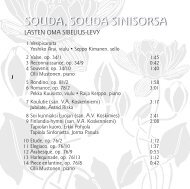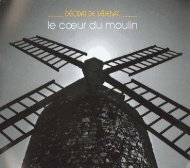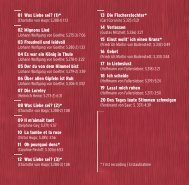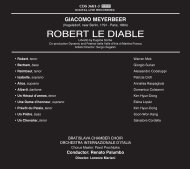Create successful ePaper yourself
Turn your PDF publications into a flip-book with our unique Google optimized e-Paper software.
Pauline Viardot<br />
Text by Jean Racine<br />
‘Scène d’Hermione’ from Andromaque [CD 1 Track 17]<br />
(pub. 1887, possibly earlier)<br />
ANNA CATERINA ANTONACCI<br />
IN THE 1840s and 1850s, there was a great revival of interest in Paris in the<br />
plays of Jean Racine, principally because of the performances of the<br />
tragedienne Rachel (1820-1859). In Andromaque, the Greek prince Pyrrhus is<br />
betrothed to Hermione, but falls in love with the captured widow of Hector,<br />
Andromache. In this scene, Hermione accuses her fiancé of loving the Trojan<br />
widow. Rossini had set this play as an opera, Ermione, in 1819, which Viardot<br />
no doubt knew of (but could never have seen). She also composed a setting of<br />
a scene from Racine’s Athalie. When the poet Alfred de Musset was pursuing<br />
Viardot, he was also smitten by Rachel, and wrote a double tribute to them,<br />
‘O jeunes coeurs remplis d’antique poésie, Soyez les bienvenus, enfants aimés<br />
des dieux!’<br />
Je ne t’ai point aimé, cruel! I didn’t love you? How cruel!<br />
Qu’ai-je donc fait? What did I do then?<br />
J’ai dédaigné pour toi les vœux for you I spurned the princes of<br />
de tous nos princes; my own country;<br />
Je t’ai cherché moi-même au I sought you out, myself, in the<br />
fond de tes provinces; depths of your lands;<br />
J’y suis encore malgré tes infidélités, I’m still here, despite your faithlessness,<br />
Et malgré tous mes Grecs and despite my Greek warriors,<br />
–70–

















